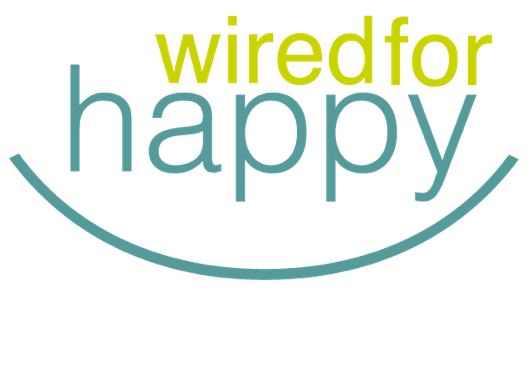“Anger, in general, is healthy. Just like sadness or happiness, it’s a normal emotion. Where people get into trouble is when anger becomes a behavior that is physically, verbally or emotionally inappropriate.” —Carole D. Stovall
As a psychotherapist it’s sometimes difficult to convey the connection between anger and anxiety in my sleep-deprived, nervous clients. That’s because chronic worriers tend to be kind, polite, responsible, high-achievers, people pleasers and overly self-critical. Beware the conscientious exterior in yourself or others, because anger is the primary underlying emotion of anxiety.
Let’s start with the physical manifestations.
Anger is a powerful emotion, and if not handled appropriately, serious health consequences can ensue. According to research published by the American Psychological Association, anxiety and anger have been proven to be hazardous to health:
“These ‘terrible twos’ increase vulnerability to illnesses, especially upper respiratory illness; compromise the immune system; increase lipid levels; exacerbate pain; and increase the risk of death from cardiovascular disease and from all sources of death.”
And a study from Concordia University shows that for millions of sufferers of Generalized Anxiety Disorder (GAD), anger is more than an emotion; it’s a conduit that intensifies anxiety. Specifically, when the anger is internalized rather than expressed—think seething inside without showing it.
“Why would someone who avoids conflict and doesn’t like getting angry, in actuality, be an angry person?” is a common query. And it’s a great question. But first, let’s proceed with the societal rules. In general, we don’t reward anger.
Most children are taught from an early age that anger is mean, impolite, rude, hot-headed and out of control behavior. And that’s the origin of the issue.
When adults are afraid of their anger (that’s a hint, by the way) they tend to repress their emotions. But you can only deny feelings for so long, and eventually, all feelings go somewhere. Acting “as if” the situation or person at hand did not upset you is to deny your authentic emotional state, not to mention, set off a ticking time bomb. Kids model what they are taught at home, so if Mom or Dad didn’t own their feelings and subsequent behavioral reactions, what lessons are passed along?
Basically, uncomfortable feelings are not to be expressed or acknowledged. And there’s a good chance emotional regulation was not modeled, either. This can lead to confusion, shame, dependency and low self-worth.
After all, if Johnny or Sara can’t communicate their anger when the school bully smashed their lunch, or laughed when they read aloud, they must have done something to provoke this unwanted and embarrassing behavior. In time, Johnny and Sara internalize that they are somehow broken or defective. Complicating matters is the fact that their feelings of being wronged do not just disappear…
Progressing to adulthood and a lifetime spent in emotional-expression limbo means adopting unhealthy coping skills. For example, hyper-vigilance (if your parents didn’t provide a safe container for your feelings, who can you trust?), dependence on others to affirm your self-worth (or controlled substances to numb the pain), a lack of trust in the safety and order of the world, in others, and in yourself, chronic self-doubt, and pleasing others so they don’t reject you, too.
While the intensity and frequency of dysfunctional emotional habits fluctuate, the basic premise remains the same: dependency makes us mad, while repressed anger/hostility causes us to stay stuck, and guilt and shame about our angry outbursts perpetuates the cycle. *Once you realize your two biggest fears around wp themes anger are untrue: 1. If you’re able to unleash the torrent of pent-up rage, you will cause irreparable damage and 2. You will not longer be liked or loved; you are ready to come to terms and experience anger in healthy ways.
Caveat: Developing a healthy attitude around anger and its release will take time. As a headshrinker, I highly recommend finding a counselor to support and guide you.
The following steps can help you experience less anxiety around anger:
1. Feel your feelings. Because there’s a good chance you weren’t taught to handle anger and regulate emotions, it’s important to allow yourself the time and the space to stew in emotional upset.
2. Normalize anger. Anger is not a “bad” emotion, and it can certainly be an appropriate response to injustice. It may also lead to better outcomes in business negotiations as well as an increased motivation to change what’s wrong in your life and with the world.
3. Assess when to confront and when to avoid conflict. Developing firm and consistent boundaries will help you assess when it’s wise to stand up to the person or situation which upsets you, or whether it’s best to avoid conflict. Mindfulness-based exercises like deep-breathing and meditation can help you stay in the present. Because the tendency may be to view conflicts from a distorted lens of the past, pay careful attention to the stories you may be telling yourself. This article is chock full of tips on developing healthy thought patterns.
4. Come to terms with childhood wounds. This can be a tall order, for sure. While your parents may have mistreated you, they’re not living your life right now. Viewing yourself as a victim will not allow you to focus on your strengths or accomplish your goals. Therapy can support you toward reframing negative core beliefs and helping you heal from past events.
5. Learn that you teach people how to treat you. When you’re upset, you have a right to your feelings. If others don’t support you in the way you want or need, let them know. Just remember, your response is your responsibility.
The key is knowing how to express anger at the right time, in the right amount, and to the right people. You’ll sleep better at night, too!
*****
For added support with “Calming Your Anxious Mind,” check out the online course within Team Happy. Click here to join.
For weekly psychological insight + free relaxation Mp3 audio recordings, subscribe to wiredforhappy.com
Let’s connect on Facebook, Twitter, and Instagram!
Until next week,
—Linda








